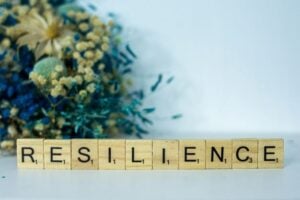Learning from ‘Intelligent Failure’
Learning from failure could potentially hold more benefits than learning from success, although there is a certain bias we all hold towards success. This could be a critical awareness in the development of a leader in any type of field, including insights.
In Harvard Business School’s “Do Leaders Learn More From Success or Failure?,” Professor James Heskett cites Professor Amy Edmondson’s book, Right Kind of Wrong: The Science of Failing Well (Atria Books, 2023), which makes a strong case for the notion that we often learn a lot from failure. Edmondson’s book defines intelligent failure as having four key attributes: “… it takes place in new territory; the context presents a credible opportunity (in relation to risk) to advance toward a desired goal; … it is informed by available knowledge; … and finally the failure is as small as it can be to still provide valuable insights.” She adds the bonus that “the failure’s lessons are learned and used to guide next steps.”
Fostering an encouraging culture, both for the team and for the individual mindset, which encourages success but does not fear failure, can benefit the company in the long run. There is no learning from failure if it is proverbially swept under the rug and forgotten about.
Encouraging a Culture of Learning
We have discussed success and failure in several posts on All Things Insights and All Things Innovation. In “Ignite a Culture of Innovation,” from the successes to the failures, from the breakthroughs to the breaking points, the innovation community knows all too well that fostering a culture of innovation on your team and indeed throughout your company environment is a key part of a winning formula. It’s not just what you create but how you create it.
In All Things Insights’ “Achieving a Strategic Advantage Over the Competition,” we examined the complex and rapid world of data. Yet one needs to see the big picture. This can help you make informed decisions and gain a better understanding of the business. Developing a higher-level overview of the business and its operations and systems gives rise to the strategic business insight. This can help improve the performance of the insights team in the future as well, in both an effective strategic sense, as well as to identify opportunities and help with forecasting. With a focus on analytics, strategic insights gives the “why” behind the data and enables companies to quickly adapt and pivot in the marketplace.
Embracing Failure to Fuel Growth
Failure in the market research field can be a valuable learning experience that contributes to eventual success. Overall, failure can serve as a catalyst for growth, innovation, and ultimately, success. It’s not about avoiding failure altogether but rather embracing it as a necessary step on the path to achieving meaningful results. According to ChatGPT, here are some benefits:
- Learning from Mistakes: Failure provides insights into what doesn’t work, allowing researchers to refine their methods and strategies. Each failure is an opportunity to gather valuable data and adjust approaches accordingly.
- Innovation and Creativity: Failure often prompts individuals to think outside the box and explore new ideas. It encourages innovation and creativity as researchers seek alternative solutions to overcome challenges encountered in their projects.
- Resilience Building: Dealing with failure in the market research field builds resilience. Researchers learn to bounce back from setbacks, adapt to changing circumstances, and persevere in the face of challenges, which are crucial traits for long-term success.
- Improved Decision Making: Analyzing failures helps researchers make more informed decisions in the future. By understanding the reasons behind failures, researchers can make better choices, mitigate risks, and enhance the effectiveness of their strategies.
- Building Trust and Credibility: Transparency about failures can enhance trust and credibility within the industry. Acknowledging and learning from mistakes demonstrates humility and a commitment to continuous improvement, which can strengthen relationships with clients and colleagues.
- Personal Growth and Development: Failure fosters personal growth by pushing individuals out of their comfort zones and encouraging self-reflection. It provides opportunities for skill development, self-discovery, and the refinement of expertise in the market research field.
- Differentiation and Competitive Advantage: Embracing failure as part of the learning process can differentiate researchers from their competitors. Those who are willing to take calculated risks, learn from failures, and adapt quickly are better positioned to innovate and stay ahead in the market.
- Identifying Opportunities: Failure often reveals unexpected insights and opportunities that may have been overlooked initially. By analyzing failures, researchers can uncover hidden trends, customer preferences, or market niches that can be leveraged to achieve success in future endeavors.
Can Success Breed Failure?
Of course, all this talk about failure makes us think, just what are the ingredients for success? And can success ultimately breed failure? In a Harvard Business Review article, “Why Leaders Don’t Learn from Success,” Professors Francesca Gino and Gary Pisano make the argument that firms can lose their touch because success can breed failure by impeding learning at both the individual and organizational levels.
They write, “When we succeed, we assume that we know what we are doing, but it could be that we just got lucky. We make what psychologists call fundamental attribution errors, giving too much credit to our talents and strategy and too little to environmental factors and random events. We develop an overconfidence bias, becoming so self-assured that we think we don’t need to change anything. We also experience the failure-to-ask-why syndrome and neglect to investigate the causes of good performance.”
To overcome these learning impediments, the professors maintain that executives should examine successes with the same scrutiny they apply to failures. Companies should implement systematic after-action reviews to understand all the factors that led to a win, and test their theories by conducting experiments even if “it ain’t broke.”
Video courtesy of Harvard Business Review
Contributor
-

Matthew Kramer is the Digital Editor for All Things Insights & All Things Innovation. He has over 20 years of experience working in publishing and media companies, on a variety of business-to-business publications, websites and trade shows.
View all posts








































































































